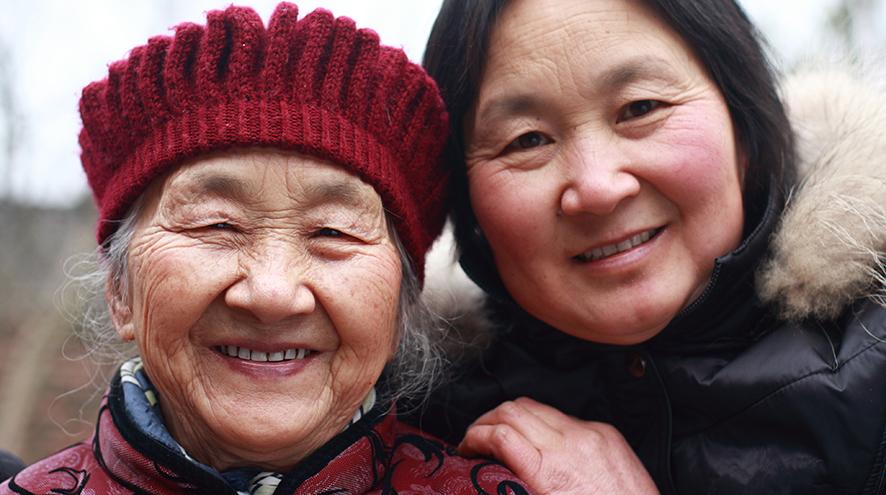Closing the gap in dementia research and support for BIPOC communities
Alzheimer Society of Canada launches initiatives to ensure diverse lived experiences are represented in dementia research, care and support.

Download this article as a PDF.
The experience of living with dementia, or caring for someone living with dementia, can differ across Canada, depending on culture, language, racial or equity barriers, and most of all, stigma. These barriers prevent people from all backgrounds, especially from BIPOC (Black, Indigenous and People of Colour) communities, from reaching out to a doctor or community resources for help and support.
The Alzheimer Society of Canada works to support people at all stages of the disease, but BIPOC people are not well-represented in dementia research, leaving a serious gap in information about diverse communities and their needs. Based on information collected from the US & UK, dementia impacts Black people at higher rates, with some studies showing twice the occurrence than in white populations. Yet the impact of this disease has on BIPOC individuals and caregivers is unknown, because the available data is minimal at best.

“The research gap means that policies, programs, and strategies don’t speak to BIPOC needs and experiences,” says Ngozi Iroanyah, Coordinator of Research, Alzheimer Society of Canada, “so people may feel even more left out and excluded, and not seek out treatment in time. People in these communities fall through the cracks — or rather, gaping holes — in the research.” Ms. Iroanyah has also experienced stigma and equity barriers as a caregiver to her father, Felix, who lives with dementia. “My personal experience navigating support for my father fuels my passion to build bridges within my own community, as well as diverse communities across Canada,” says Ms. Iroanyah.
Dr. Saskia Sivananthan, Chief Science Officer at the Alzheimer Society of Canada shares that she and her team of researchers are leading several initiatives aimed at closing the equity gap in dementia treatment and support. “We are working to better understand the barriers faced by people living with dementia and their caregivers, by ensuring BIPOC voices are represented in everything we do,” says Dr. Sivananthan. The Alzheimer Society of Canada has launched the following projects:
Expansion of Alzheimer Society of Canada Advisory Group
BIPOC voices and lived experiences must be present where decisions about programs, research and support for people living with dementia are made. We’re asking caregivers and people living with dementia, especially from BIPOC communities, to consider joining the Alzheimer Society of Canada’s Advisory Group.
The National Dementia Journey Survey
The Alzheimer Society of Canada is conducting the National Dementia Journey Survey to understand the experiences of people living with dementia, with an intentional focus on BIPOC communities. The experiences shared will support development of new resources to ensure family physicians are equipped to support all Canadians living with dementia, and help to shape programs and resources provided by Alzheimer Societies across the country.
The survey is open to all people living with dementia and their caregivers, though BIPOC are especially encouraged to complete the survey. Share your experience at www.alzheimer.ca/survey - the survey is available in English, French, Hindi, and Chinese (Simplified and Traditional).
Developing culturally specific dementia resources and programs

The Alzheimer Society produces a vast amount of information to support people living with dementia, which is central to helping the people we serve. But these materials do not reflect Canada’s racial and cultural reality. “We’re changing the way we support all Canadians living with dementia,” says Dr. Sivananthan, “by working together with BIPOC communities to create culturally specific materials, as well as translating our resources into a broad range of languages.”
“We’re trying to move towards deeper community engagement whereby we have the experiences, voices, and perspectives of underrepresented communities informing the things we do,” says Ms. Iroanyah. “These efforts are crucial to enhancing the experience of people living with dementia and their caregivers, across the country.”
About the Alzheimer Society
The Alzheimer Society is Canada's leading nationwide health charity for people living with Alzheimer's disease and other dementias. Active in communities right across Canada, the Society offers help for today through programs and services for people living with dementia and hope for tomorrow by funding research to find the cause and the cure. Find your local Alzheimer Society today.
Media contact
Amanda Carvalho
Senior Manager, Communications,
Alzheimer Society of Canada
Email: acarvalho@alzheimer.ca
Phone: 1-800-616-8816 ext. 2955
